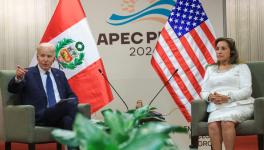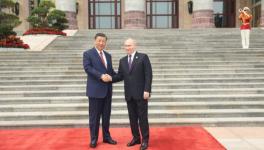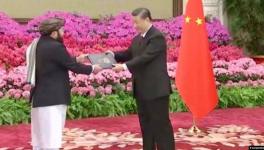As India Lets Corporate Honchos Flee with Public Money, China Cracks the Whip on Private Conglomerates

The Chinese government has seized control of Anbang Insurance Group Co. and prosecuted founder Wu Xiaohui for alleged fraud, adding momentum to the government's clampdown on extravagant, debt-financed foreign acquisitions by China's private conglomerates.
The group's chairman Wu has been indicted by the First Intermediate People's Court in Shanghai for fraudulent fund-raising and for improperly taking company assets.
The move is seen as a significant measure to provide muscle to President Xi Jinping's efforts to curb corruption and reduce debt.
Earlier last year, Chinese regulators asked banks to stop providing funds for foreign acquisitions by another conglomerate – the Dalian Wanda group – which was engaged in a spree of offshore buying.
Anbang shot into limelight internationally when it bought the Waldorf Astoria hostel in New York, a symbol of luxury and Manhattan landmark, for $2 billion from Hilton in 2014. In 2016, Anbang struck a deal to buy Strategic Hotels & Resorts for $6.5 billion from private equity group Blackstone.
Last year, China identified four of the large private conglomerates based in the country as having borrowed too aggressively to finance foreign acquisitions – Anbang, Dalian Wanda, Fosun and HNA.
The spending spree by these conglomerates to buy overseas assets had attracted much attention. Apart from Anbang's luxury hotel deals, Dalian Wanda's $3.5 billion acquisition of Hollywood studio Legendary Entertainment, and HNA's $40 billion plus buying spree including purchase of large stakes in Deutsche Bank and Hilton made headlines abroad.
The conglomerates borrowed heavily from Chinese banks to make these acquisitions.
The Chinese government's intervention to put brakes on the overseas spending spree by these conglomerates came in 2017. This was prompted by concerns that "the companies were paying too much for the foreign assets and draining China's foreign currency reserves, while relying on risky financing methods to fund acquisitions," Financial Times reported. The model of using borrowed funds to fund foreign acquisitions was seen as not beneficial for the country – state-owned banks would have to bear the risk if things go wrong, the report said.
In fact, units of the HNA group missed payments due to several Chinese banks in 2017-18, resulting in three banks to freeze some of the borrowers' unused credit lines, Bloomberg reported in January.
In August 2017, China laid down new rules on overseas investments, restricting overseas investments in property, hotel, film, entertainment and sports, and banning investments in gambling and sex industries. The new rules, announced by the State Council, backed overseas investments which support the country's Belt and Road Initiative.
China also sought to restrain the amount of money flowing outwards, with the People's Bank of China imposing capital controls.
As the Chinese government tightened its noose, the Dalian Wanda group sold a 17 per cent stake in the Spanish football club Atletico Madrid and offloaded luxury property in London. It has unloaded foreign assets worth more than $4 billion in the past nine months. The group chairman Wang Jianlin also announced that all the overseas debt of the conglomerate would be cleared.
The crackdown by the Chinese government to discipline private conglomerates to strengthen the economy and protect public sector banks comes at a time when in India, the refusal of the central government to show private corporates their place has adversely affected public sector banks. Corporate honchos who borrowed large amounts of money from public banks in India have failed to pay back the loans, and some of them have even chosen to flee abroad.
China’s determined effort to root out graft and to reduce risk in the financial system shows that a different path is possible, if only the Indian government shows the necessary political will.
Get the latest reports & analysis with people's perspective on Protests, movements & deep analytical videos, discussions of the current affairs in your Telegram app. Subscribe to NewsClick's Telegram channel & get Real-Time updates on stories, as they get published on our website.
























